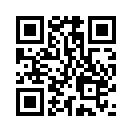If tariffs on Chinese lithium-ion batteries and inverters are raised, US energy storage costs may increase by 15%
It is understood that the US Trade Representative Office (USTR) listed the lithium-ion battery and the static converter for the energy storage system on the tariff increase list on May 13. According to the US International Trade Commission (USITC), in 2017 the United States imported more than $1 billion worth of lithium batteries from China, and this figure does not include batteries used in electric vehicles. After China, South Korea and Japan, their value. They were $519 million and $440 million, respectively. In terms of battery exports, Asia accounts for the vast majority of exports worldwide. According to one report, the total global lithium battery manufacturing industry is expected to reach 316 GWh in 2019, of which 73% of lithium battery capacity is located in China, followed by the United States (12 %), South Korea (7%) and Europe (4%).
Although the latest tariff increase may not prevent the US energy storage market from booming, it will also significantly increase the installation cost of the battery, and the stale trade negotiations between China and the United States may put pressure on the US energy storage market.
“Customs affect different projects, but we predict that a 25% tariff on lithium-ion batteries and inverters may increase the price of a 4-hour battery energy storage system by about 15%.” Analyst Felix Moya said. Considering that lithium-ion batteries account for 40% to 60% of the total installed cost of independent battery energy storage systems in the United States, it can be seen that if tariffs are added, the cost increase will be more significant.
Trump hopes to reach a negotiated agreement with China during the G20 summit in Japan. Chinese diplomats said: "We have noticed that the US has publicly stated on many occasions that it is expected to arrange for the heads of state of China and the United States to meet during the G20 summit in Osaka." For the US has previously added 200 billion US dollars of goods. China has also adopted counter-measures, which impose a 25% tariff on some US goods, including lithium-ion batteries.
China's demand for lithium-ion batteries in the United States is not high, and for the booming battery energy storage industry in the United States, the demand for lithium-ion batteries in China is indeed high. According to Wood Mackenzie's latest U.S. energy storage monitor data, in the first quarter of this year, the installed capacity of the US energy storage market hit a record high of 148.8 MW, compared to 2018. The first quarter increased by 232%, compared with 6% in the fourth quarter of 2018. As part of the energy storage market, electrochemical energy storage is very large.
Contact: Ashlee Peng
Email:sales01@liliangbattery.com
Tel:+86-13360681526

